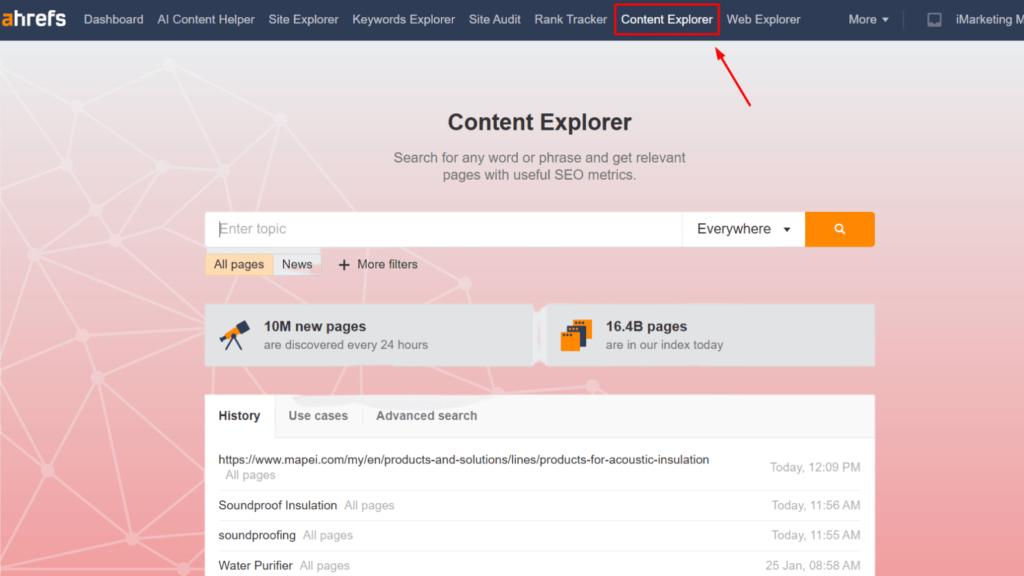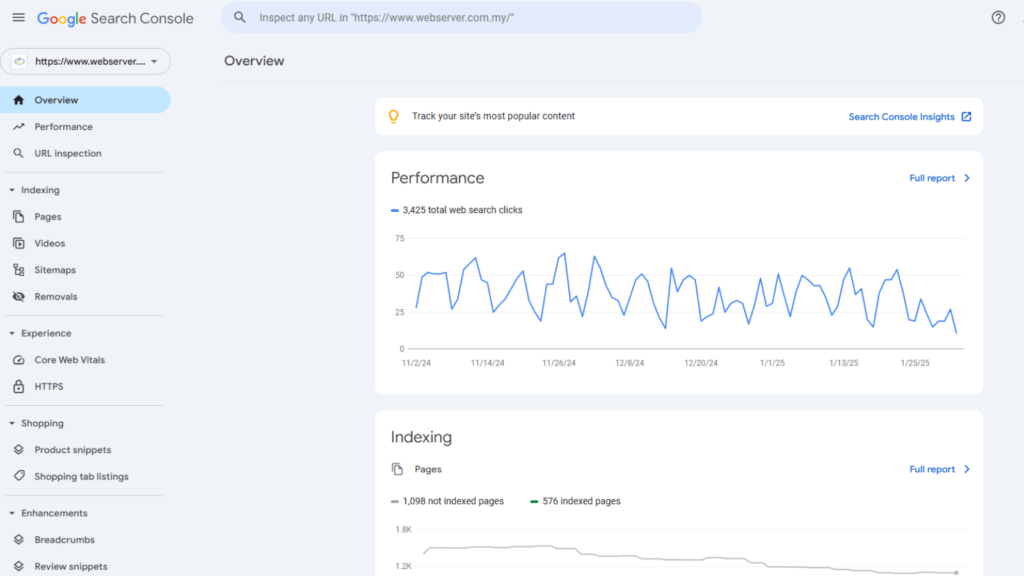-
Sales +603 2770 2833
- sales@webserver.com.my
The tools and resources for creating an SEO content strategy
Table of Contents
Toggle
Developing an SEO content strategy involves using specific tools and resources to promote materials and enhance search across various channels.
Tools such as Google Docs and AI writing tools make the process easier to produce high-quality content. The SEO writing assistant helps in creating a captivating meta description, finding related keywords, and ensuring that your focus keyword has been smoothly integrated throughout the text.
If properly adopted within the right contexts, these SEO content tools help your content enjoy higher ranks in the search engine list, attract more traffic, and enhance your online reputation. In this article, let’s look at the fundamental steps and guide that can help you formulate the best SEO content strategy.
Keyword Research Tools
Keyword research remains the baseline of any expert SEO plan in the current world. Different keywords enable you to know the audience’s expectations and how to assist by providing content. Here are some key tools for keyword research:
Google Keyword Planner
Specifically, Google’s free tool is helpful when looking for the primary keywords for your business. It enables you to observe the frequency of particular keywords, which proves useful regarding search volume and competition. The given information is useful for choosing keywords that are popular in terms of the number of monthly searches yet not very competitive.
Semrush
Due to its elaborate features, Semrush has precise keyword research, competitive analysis, and keyword tracking tools. This feature offers more information about the keywords’ difficulty, search volume, and competitors’ density, which can help avoid deciding low-potential keywords. In addition, Semrush also has data on competitors’ top keywords, which helps adjust the approach.
Ahrefs

Another useful feature is its vast keyword list and strongly developed facilities for competitor analysis. It enables you to search for keywords that could be used, assess possible keywords, and monitor keyword positions. Ahrefs also displays data that gives the total clicks on a specific keyword, which is valuable information for ranking a keyword.
Ubersuggest
Developed by Neil Patel, Uber suggest is quite an easy-to-use tool that highlights keywords, the number of searches for them, and their competition. It also provides points regarding content ideas and backlinks, making it useful in keyword research and content marketing.
Content Optimisation Tools
After that, you should optimise the content using target keywords that have been identified to rank well for those keywords. Optimisation tools can ensure your content is SEO-friendly and aligned with best practices.
Whether you’re refining existing content or starting a new writing process, a content editor can help you craft content that not only resonates with your audience but also appeals to search engines.
Yoast SEO
The well-known WordPress plugin for SEO optimisation is Yoast SEO, which offers real-time feedback regarding content. This one provides tips on low readability, keyword choice, and meta tags. Also, there are functions for working with sitemaps, the use of REL=canonical, and social networks.
Surfer SEO
This tool analyses the pages that rank well for the keywords you have entered and suggests how you can improve. Surfer SEO analyses details such as keyword density, content distribution, and the number of words in the text to help you produce content that complements search engines’ requirements.
Clear scope
The Clear scope AI rights possible keyword and phrase options for you to insert into your work. It also aids in expanding the content’s relevance and ranks by checking that all related topics for the targeted keywords are considered. The information provided by Clear scope is derived from the best material, so specific data will put you in a more advantageous position regarding competitors.
Technical SEO Tools
Technical SEO is crucial for ensuring your website is easily crawlable and indexable by search engines. These tools help you identify and fix technical issues that could hinder your site’s performance:
Google Search Console

This free tool from Google is essential for monitoring your website’s presence in search results. It provides insights into how Google views your site, identifies crawl errors, and highlights indexing issues. Google Search Console also offers data on search traffic, helping you understand which keywords and pages are driving the most traffic.
MOZ Pro
MOZ Pro offers a suite of tools for site audits, rank tracking, and backlink analysis. It provides insights into technical issues, keyword opportunities, and on-page optimisation. MOZ Pro’s site audit feature helps you identify and prioritise technical issues, ensuring your site is in top shape for search engines.
Analytics Tools
Understanding how users interact with your site and how your content performs is essential for continuous improvement. Analytics tools provide valuable insights into user behaviour and content performance:
Google Analytics
This free tool tracks and reports website traffic, offering a wealth of data on user behaviour, traffic sources, and content performance. Google Analytics helps you understand which pages are most popular, how users navigate your site, and where they drop off. This data is crucial for optimising your content and improving user experience.
Matomo
An open-source analytics platform, Matomo offers detailed insights into your website’s performance. It provides data on traffic, user behaviour, and conversion rates, similar to Google Analytics, but with a focus on data privacy. Matomo allows you to host your analytics data on your own server, ensuring full control over your data.
Content Creation and Management Tools
Creating high-quality, engaging content is key to a successful SEO strategy. These tools help you produce and manage content more efficiently:
Grammarly
Grammarly ensures your content is grammatically correct and easy to read. It checks for grammar, spelling, and punctuation errors, and offers suggestions for improving clarity and style. Grammarly’s tone detection feature helps you ensure your content matches your brand’s voice.
Hemingway Editor
This tool helps improve the readability of your content by highlighting complex sentences and passive voice. Hemingway Editor provides readability scores and suggestions for simplifying your writing, making your content more accessible to a broader audience.
Link Building Tools
Building high-quality backlinks is crucial for improving your website’s authority and search engine rankings. These tools help you manage and streamline your link-building efforts:
Buzz Stream
Buzz Stream manages outreach campaigns and tracks your link-building efforts. It helps you find contact information, send personalised outreach emails, and track responses. Buzz Stream’s CRM features make it easy to manage relationships with influencers and bloggers.
Pitchbox
Pitchbox automates the outreach process and helps you build relationships with influencers and bloggers. It integrates with SEO tools like MOZ and Ahrefs to find high-quality link opportunities. Pitchbox’s email templates and automation features save time and streamline your link-building efforts.
Competitor Analysis Tools
Understanding your competitors’ strategies can give you a significant edge. These tools help you analyse your competitors’ SEO tactics and identify opportunities for improvement:
SimilarWeb
This tool provides insights into your competitors’ traffic sources and audience demographics. SimilarWeb offers data on traffic volume, referral sources, and user engagement, helping you understand your competitors’ strengths and weaknesses. This information can inform your own SEO and content strategy.
SEMrush
In addition to keyword research, SEMrush offers detailed competitor analysis, including backlink profiles and top-ranking keywords. It provides insights into competitors’ content strategies, social media performance, and advertising campaigns. SEMrush’s competitive analysis tools help you identify gaps and opportunities in your own strategy.
Additional Resources
Staying updated with the latest SEO trends and best practices is vital for long-term success. Here are some additional resources to help you stay informed and continuously improve your SEO strategy:
SEO Blogs and Forums
Websites like MOZ, Backlinko, and Search Engine Journal offer valuable insights and updates on SEO best practices. These blogs cover a wide range of topics, from technical SEO to content marketing, providing actionable tips and industry news.
Online Courses and Webinars
Platforms like Coursera, Udemy, and HubSpot Academy offer courses on SEO and digital marketing. These courses cover everything from the basics of SEO to advanced techniques, helping you build a solid foundation and stay up-to-date with the latest trends.
Bottom Line
Content creation is not without its importance in any good digital strategy, and optimally tuning your meta description presents a keystone aspect within this process. While making this content, one should put greater emphasis on clarity and also engage the audience. It goes without saying that more effectively creating content will ensure that your message hits a chord with readers, while it amplifies your search engine prominence.
To sum up, elaborating an efficient SEO content plan is necessary to act within a wide range of measures. You can create a winning strategy by doing keyword research, content optimisation, technical SEO, analytics, content creation, link building, and competitor analysis. Let us re-emphasise that unless you are a specialist in SEO; it is relatively easy to get lost in the existing channels and fail in the long-term strategy.

WebServer.com.my, a business unit of a privately owned Acme Commerce Sdn Bhd was established in 1989. Specializes in the complex managed hosting services such as database hosting and mission critical application hosting since 1999.
-
Office Hour
+603 2770 2833 -
Extended
+603 2770 2803 -
Email
sales@webserver.com.my -
Technical Support
support@webserver.com.my
Switch The Language




